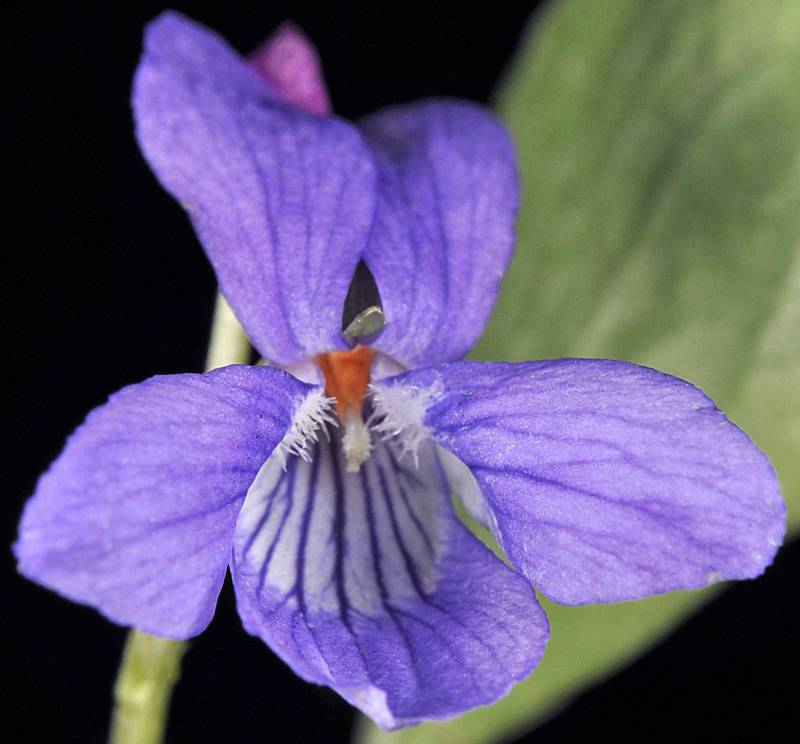|
|
early blue violet, wild dog violet
|
|
Glabrous to densely puberulent perennial from slender rhizomes, from stemless to 10 cm. tall. |
|
Leaves short- to long-petiolate, the blade cordate-ovate to lance-ovate, with fine, rounded teeth, 1-3 cm. long; stipules liner-lanceolate, 3-10 mm. long, entire to remotely slender-toothed. |
|
Flowers 5-15 mm. long, the spur on the lowest petal slender, over half the length of the petal; petals blue to deep violet, the lower three with a whitish base penciled in violet, the lateral pair white-bearded; style head bearded with thick hairs. Some flowers also cleistogamous (do not open up but do self-pollinate and produce seed). |
|
Fruit a 3-valved capsule, ovary superior, placentation parietal. |
|
|
Viola rostrata |
|
|
April-August |
|
Dry to moist meadows and open woods, from the lowlands to subalpine areas. |
|
|
Widely distributed on both sides of the Cascades crest in Washington; Alaska to California, east across North America to the Atlantic Coast.
|
|
Native |
|
Not of concern |
V. adunca, V. arvensis, V. canadensis, V. flettii, V. glabella, V. howellii, V. lanceolata, V. langsdorffii, V. macloskeyi, V. nephrophylla, V. nuttallii, V. odorata, V. orbiculata, V. palustris, V. pluviae, V. purpurea, V. renifolia, V. riviniana, V. selkirkii, V. sempervirens, V. sheltonii, V. sororia, V. tricolor, V. trinervata, V. ×wittrockiana |
V. arvensis, V. canadensis, V. flettii, V. glabella, V. howellii, V. lanceolata, V. langsdorffii, V. macloskeyi, V. nephrophylla, V. nuttallii, V. odorata, V. orbiculata, V. palustris, V. pluviae, V. purpurea, V. renifolia, V. riviniana, V. selkirkii, V. sempervirens, V. sheltonii, V. sororia, V. tricolor, V. trinervata, V. ×wittrockiana |
| |


